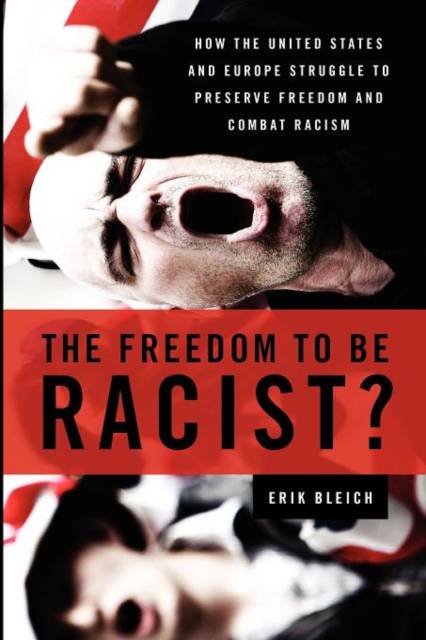
Door een staking bij bpost kan je online bestelling op dit moment iets langer onderweg zijn dan voorzien. Dringend iets nodig? Onze winkels ontvangen jou met open armen!
- Afhalen na 1 uur in een winkel met voorraad
- Gratis thuislevering in België vanaf € 30
- Ruim aanbod met 7 miljoen producten
Door een staking bij bpost kan je online bestelling op dit moment iets langer onderweg zijn dan voorzien. Dringend iets nodig? Onze winkels ontvangen jou met open armen!
- Afhalen na 1 uur in een winkel met voorraad
- Gratis thuislevering in België vanaf € 30
- Ruim aanbod met 7 miljoen producten
Zoeken
The Freedom to Be Racist?
How the United States and Europe Struggle to Preserve Freedom and Combat Racism
Erik Bleich
Paperback | Engels
€ 82,45
+ 164 punten
Omschrijving
We love freedom. We hate racism. But what do we do when these values collide? In this wide-ranging book, Erik Bleich explores policies that the United States, Britain, France, Germany, and other liberal democracies have implemented when forced to choose between preserving freedom and combating racism. Bleich's comparative historical approach reveals that while most countries have increased restrictions on racist speech, groups and actions since the end of World War II, this trend has resembled a slow creep more than a slippery slope. Each country has struggled to achieve a balance between protecting freedom and reducing racism, and the outcomes have been starkly different across time and place. Building on these observations, Bleich argues that we should pay close attention to the specific context and to the likely effects of any policy we implement, and that any response should be proportionate to the level of harm the racism inflicts. Ultimately, the best way for societies to preserve freedom while fighting racism is through processes of public deliberation that involve citizens in decisions that impact the core values of liberal democracies.
Specificaties
Betrokkenen
- Auteur(s):
- Uitgeverij:
Inhoud
- Aantal bladzijden:
- 224
- Taal:
- Engels
Eigenschappen
- Productcode (EAN):
- 9780199739691
- Verschijningsdatum:
- 5/09/2011
- Uitvoering:
- Paperback
- Formaat:
- Trade paperback (VS)
- Afmetingen:
- 152 mm x 231 mm
- Gewicht:
- 276 g

Alleen bij Standaard Boekhandel
+ 164 punten op je klantenkaart van Standaard Boekhandel
Beoordelingen
We publiceren alleen reviews die voldoen aan de voorwaarden voor reviews. Bekijk onze voorwaarden voor reviews.











